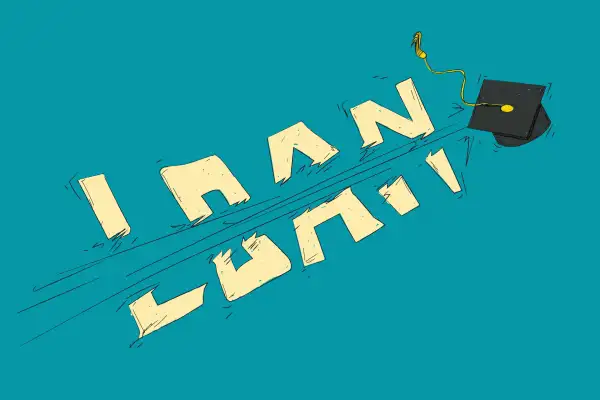A Step-by-Step Refine for Obtaining Pre Approval Student Loans
A Step-by-Step Refine for Obtaining Pre Approval Student Loans
Blog Article
The Function of Credit Rating in Protecting Small Company Loans for Entrepreneurs
In the competitive landscape of entrepreneurship, safeguarding a bank loan usually hinges on the crucial element of credit rating. These scores function as a numerical representation of a business owner's creditworthiness, affecting loan providers' choices and the terms supplied. A higher credit report can open up doors to favorable lending problems, while a reduced rating may provide substantial obstacles. What specifically affects these scores, and how can entrepreneurs purposefully improve them to improve their possibilities of securing important funding? The solutions to these questions hold the secret to unlocking possible growth opportunities for small companies.
Recognizing Credit Report
Credit report scores are critical mathematical depictions of a person's credit reliability, working as a crucial consider economic decision-making for lending institutions. These ratings are stemmed from an extensive analysis of an individual's credit report background, including facets such as payment background, credit history usage, length of debt background, brand-new charge account, and sorts of credit report used. Generally varying from 300 to 850, higher ratings represent lower danger to lending institutions, while reduced scores show higher threat.
The computation of credit report is executed by credit rating bureaus utilizing proprietary algorithms, with one of the most commonly acknowledged versions being FICO and VantageScore. Each design may weigh variables somewhat in different ways, however they all objective to give a consistent measure of credit history risk. A solid credit rating mirrors the individual's integrity in handling financial obligation, making timely repayments, and preserving a healthy balance in between credit made use of and available debt.
It is essential for individuals and company owner to comprehend their credit report ratings, as these figures can have far-reaching implications past individual finance. On a regular basis monitoring one's credit report, dealing with inaccuracies, and adopting audio financial routines can substantially boost credit history, consequently improving the individual's overall economic profile and creditworthiness.
Relevance for Lending Authorization
Recognizing one's credit rating is fundamental, as it plays a significant role in the procedure of financing authorization for small companies. Lenders make use of credit rating as a main metric to evaluate the creditworthiness of applicants. A solid credit rating indicates a history of liable financial behavior, suggesting to lenders that the applicant is most likely to pay off the car loan in a timely manner. A high credit report score can dramatically enhance an entrepreneur's chances of protecting a car loan with positive terms, including lower rate of interest rates and more versatile settlement alternatives.
On the other hand, a low credit report could signal prospective risk, leading lenders to either reject the funding application or enforce stricter problems. This makes it necessary for business owners to be mindful of their credit rating standing, as it directly affects their capacity to gain access to capital. Credit report scores serve as a standard step that enables loan providers to improve their decision-making procedure, guaranteeing effectiveness and consistency. As small companies typically need timely access to funds for development and sustainability, keeping a robust credit report ends up being essential. Therefore, understanding and handling one's credit rating is an essential part of getting ready for lending applications and accomplishing organization success.
Elements Impacting Ratings
A number of factors contribute to the resolution of a credit history score, each playing a crucial function in forming a person's debt account. A high ratio of used credit history to readily available credit can suggest economic overextension, adversely influencing creditworthiness.
Size of credit history likewise factors into credit rating calculations, with a longer credit rating normally seen extra positively. This metric supplies understanding right into the individual's lasting financial behavior, offering lending institutions a broader perspective on their credit scores administration abilities. In addition, the kinds of credit scores in usage are considered, as a mix of credit history accounts, such as revolving credit cards and installment finances, can show the capability to manage different economic commitments.
Lastly, recent credit rating inquiries might affect ratings (pre approval student loans). Frequent applications for brand-new credit rating can show monetary distress, therefore negatively affecting the score. Each of these aspects is crucial in the comprehensive analysis of a credit rating, affecting an entrepreneur's ability to secure a bank loan
Improving Your Credit Score Score
Increasing one's credit rating is comparable to supporting a yard; mindful attention to essential areas can yield considerable enhancements. Payment history comprises a substantial section of a credit rating score; thus, setting up automated reminders or settlements can aid maintain consistency. High debt utilization ratios, or the amount of credit report utilized relative to the credit scores limitation, can adversely affect scores.

Finally, maintaining older credit score accounts can positively influence the ordinary age of debt, which is another consider racking up models. While new credit report inquiries ought to be Read More Here minimized to stay clear of momentary rating dips, responsible credit rating monitoring over time will naturally result in rack up improvement, therefore improving qualification for beneficial tiny service financing terms.
Alternate Funding Options
Business owners with less-than-ideal credit score scores may find these options not just more obtainable but additionally customized to their special company demands. These platforms normally provide faster approval procedures and even more adaptable terms than conventional financial institutions, usually taking into consideration elements past credit rating ratings, such as company performance and cash money flow.
An additional viable alternative includes crowdfunding, where business owners can elevate resources from a huge pool of little investors using platforms like Kickstarter or Indiegogo. This technique not just supplies funds but likewise confirms service concepts through direct interaction with potential clients. In addition, microloans, commonly supplied by not-for-profit organizations, deal with local business and start-ups. They provide smaller finance quantities with reduced rate of interest, making them excellent for entrepreneurs that need minimal capital.
Billing financing and merchant cash loan are also worth considering. The previous involves marketing outstanding billings to a loan provider at a discount rate, while the latter offers an advancement on future sales. Both choices can improve money flow without the strict credit scores needs of standard finances.
Conclusion

These ratings are obtained from a thorough analysis of an individual's credit score background, incorporating elements such as repayment background, credit score use, size of debt history, new credit accounts, and kinds my latest blog post of credit scores utilized (pre approval student loans). A solid credit scores score reflects the individual's dependability in managing debt, making timely settlements, and keeping a healthy and balanced equilibrium in between credit report used and offered credit

Report this page